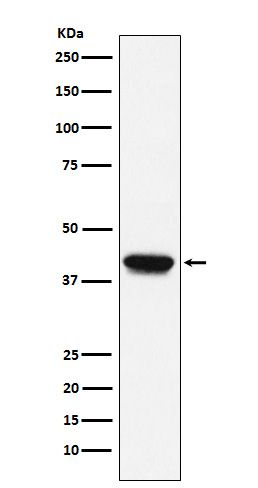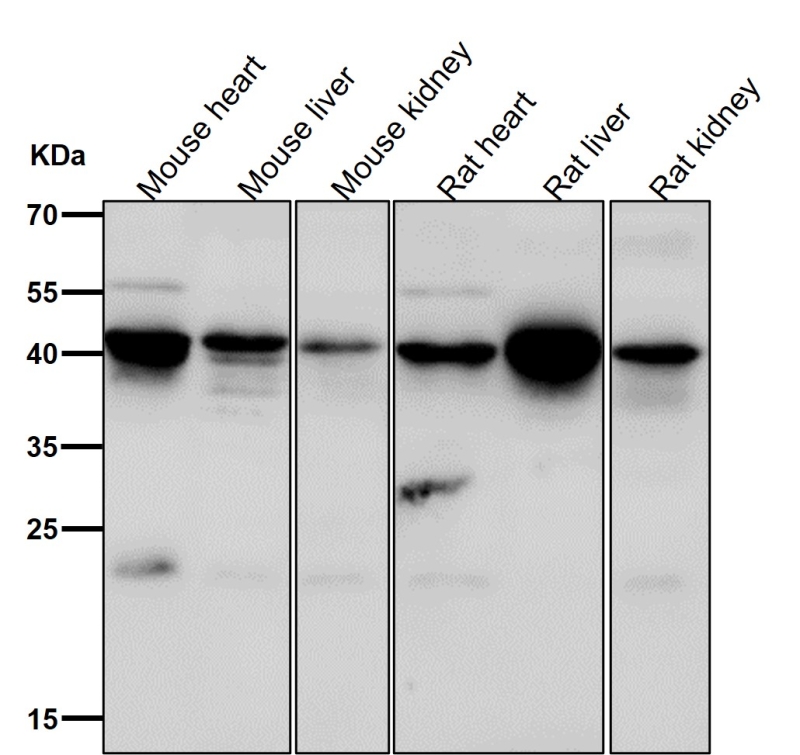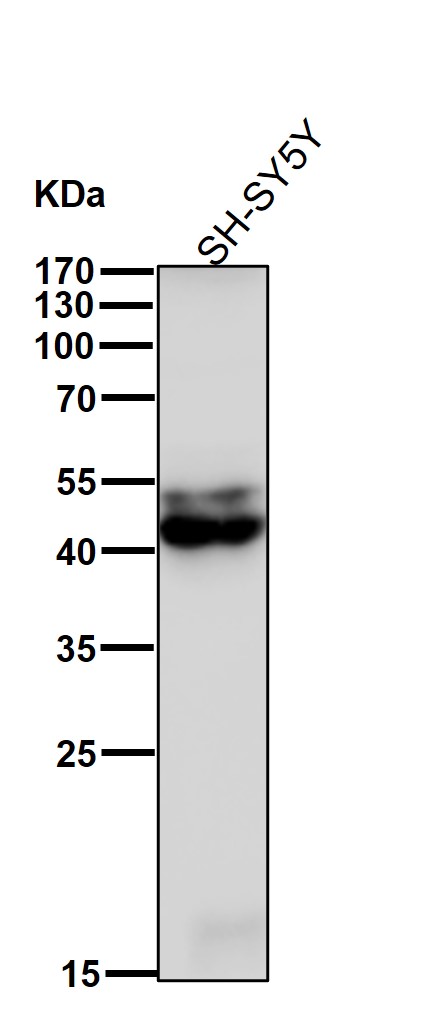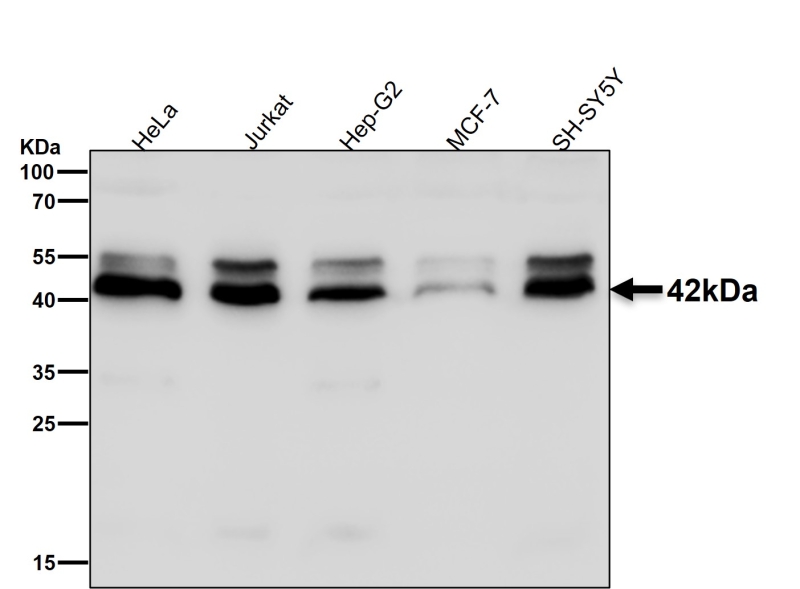



| WB | 1/1000-1/2000 | Human,Mouse,Rat |
| IF | 1/20-1/50 | Human,Mouse,Rat |
| IHC | 咨询技术 | Human,Mouse,Rat |
| ICC | 技术咨询 | Human,Mouse,Rat |
| FCM | 1/20-1/100 | Human,Mouse,Rat |
| Elisa | 咨询技术 | Human,Mouse,Rat |
| Aliases | BGN; Biglycan; DSPG1; PG S1; PGI; SEMDX; SLRR1A;;Biglycan |
| WB Predicted band size | 42 kDa |
| Host/Isotype | Rabbit IgG |
| Antibody Type | Primary antibody |
| Storage | Store at 4°C short term. Aliquot and store at -20°C long term. Avoid freeze/thaw cycles. |
| Species Reactivity | Human,Mouse,Rat |
| Immunogen | A synthesized peptide derived from human Biglycan |
| Formulation | Purified antibody in PBS with 0.05% sodium azide,0.05% BSA and 50% glycerol. |
+ +
以下是关于Biglycan抗体的3篇参考文献(简要概括):
1. **文献名称**:Biglycan: a multivalent proteoglycan providing structure and signals
**作者**:Schaefer, L., & Iozzo, R.V.
**摘要**:该综述总结了Biglycan在细胞外基质中的结构作用,及其作为信号分子通过激活TLR/NF-κB通路参与炎症和纤维化的机制,提及抗体在定位及功能研究中的应用。
2. **文献名称**:Biglycan enhances the activity of connective tissue growth factor in fibrosis
**作者**:Merline, R. et al.
**摘要**:研究通过免疫沉淀和Western blot技术,利用Biglycan抗体揭示其与CTGF相互作用,促进肾脏纤维化发展的分子机制。
3. **文献名称**:Biglycan promotes cancer stem cell traits via upregulation of SOX2 in glioblastoma
**作者**:Hu, X. et al.
**摘要**:利用Biglycan特异性抗体进行组织染色和功能实验,发现其在胶质母细胞瘤中通过调控SOX2表达增强肿瘤干性,促进侵袭和耐药。
(注:以上文献信息为示例性概括,具体内容请以实际论文为准。)
Biglycan is a small leucine-rich proteoglycan (SLRP) predominantly found in the extracellular matrix (ECM) of connective tissues, including bone, cartilage, and blood vessels. It plays critical roles in ECM assembly, collagen fibrillogenesis, and cellular signaling by interacting with growth factors (e.g., TGF-β) and cell surface receptors. Dysregulation of biglycan is linked to pathologies such as osteoporosis, cardiovascular diseases, fibrosis, and cancer, where it modulates inflammation, angiogenesis, and tumor progression.
Antibodies targeting biglycan are essential tools for studying its expression, localization, and function. These antibodies, often produced in rabbits or mice, enable detection via techniques like Western blotting, immunohistochemistry, and immunofluorescence. Specificity is validated using knockout models or siRNA-mediated silencing. Monoclonal antibodies (e.g., clone 7F1) offer high reproducibility, while polyclonal variants may detect multiple epitopes.
Research applications include investigating biglycan's role in ECM remodeling, its crosstalk with Toll-like receptors (TLRs) in innate immunity, and its dual pro- or anti-tumor effects depending on context. Commercial antibodies are widely used in biomarker studies, particularly in osteoarticular and cardiovascular research, aiding therapeutic target discovery. Proper validation remains crucial to avoid cross-reactivity with related SLRPs like decorin.
×